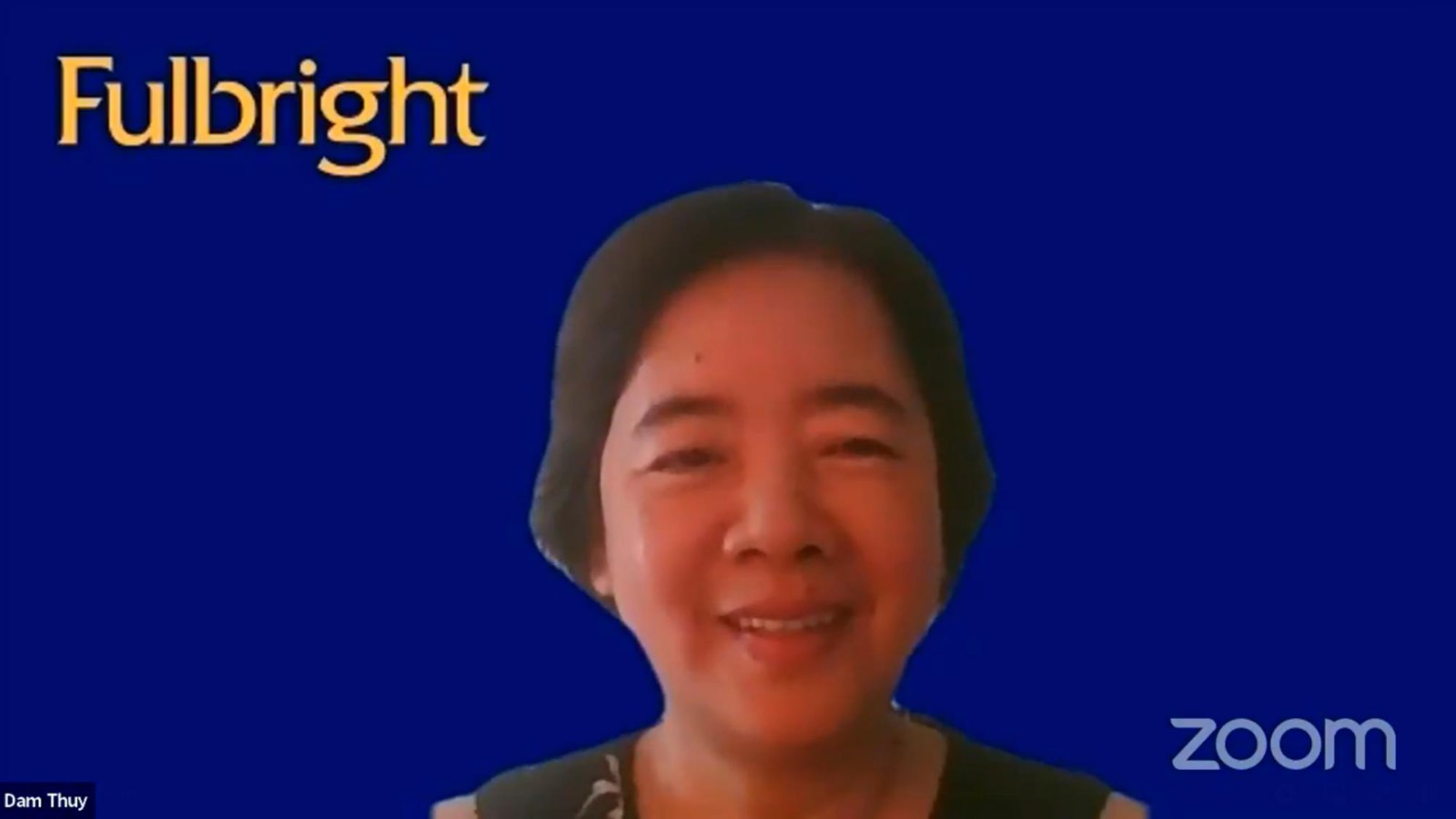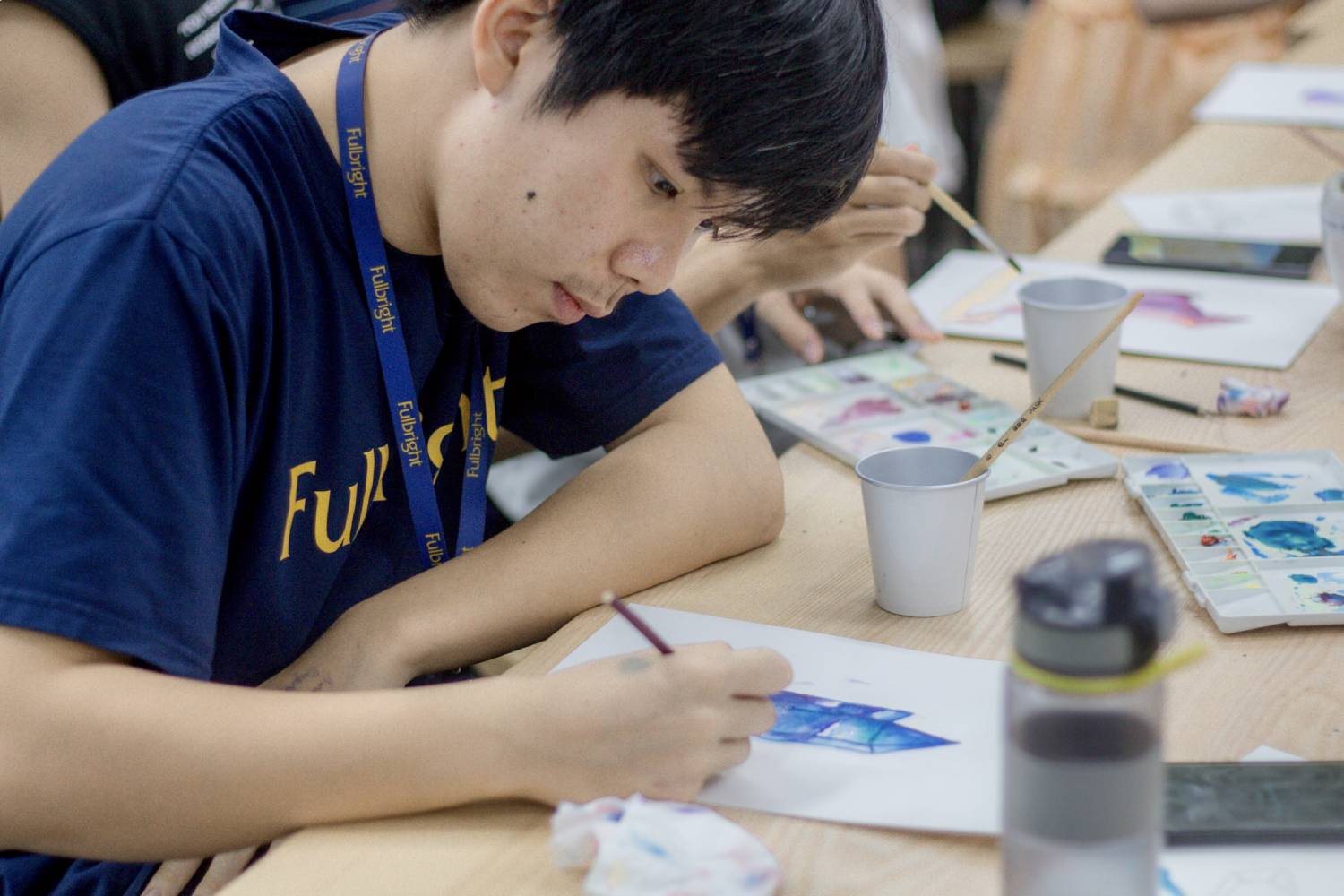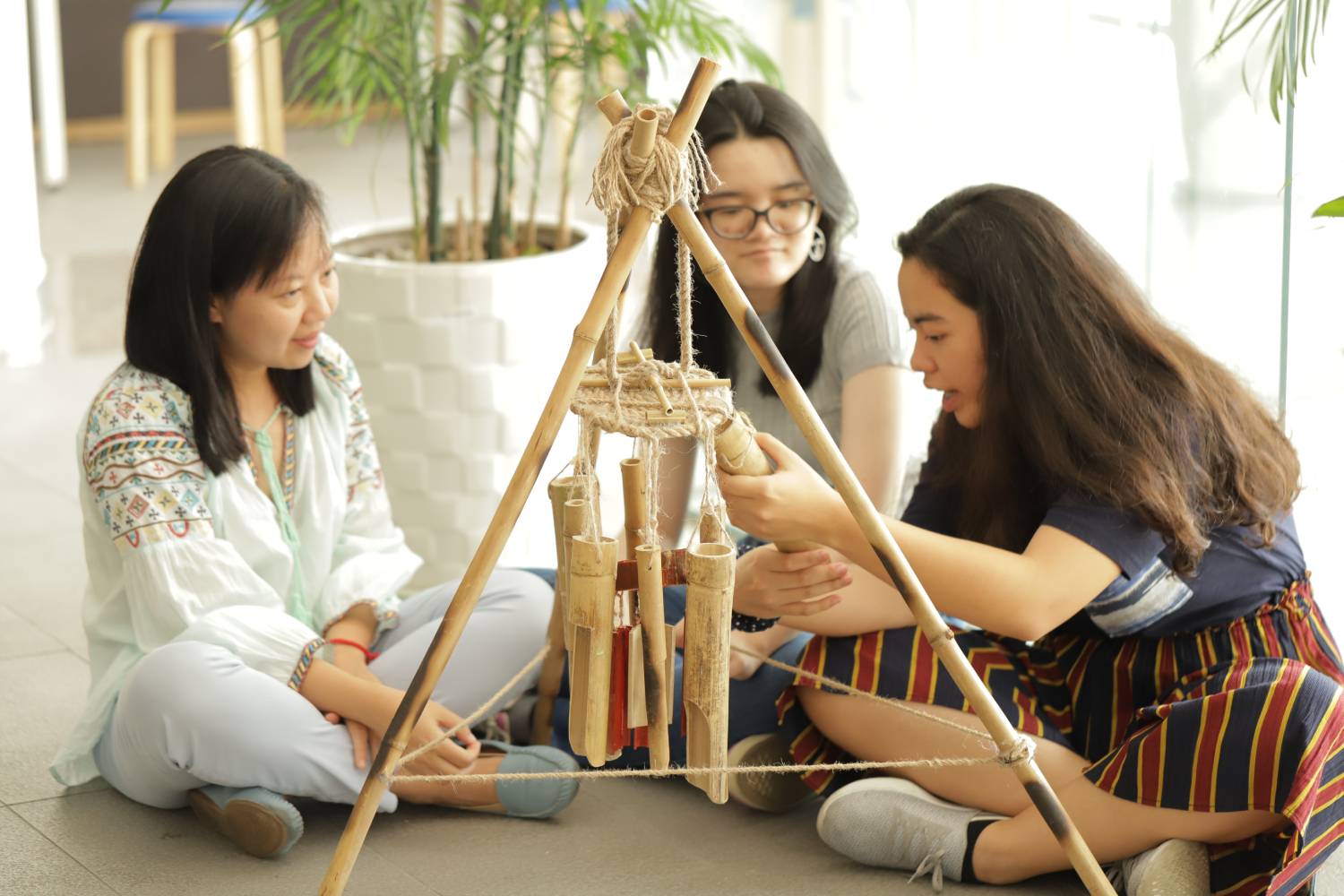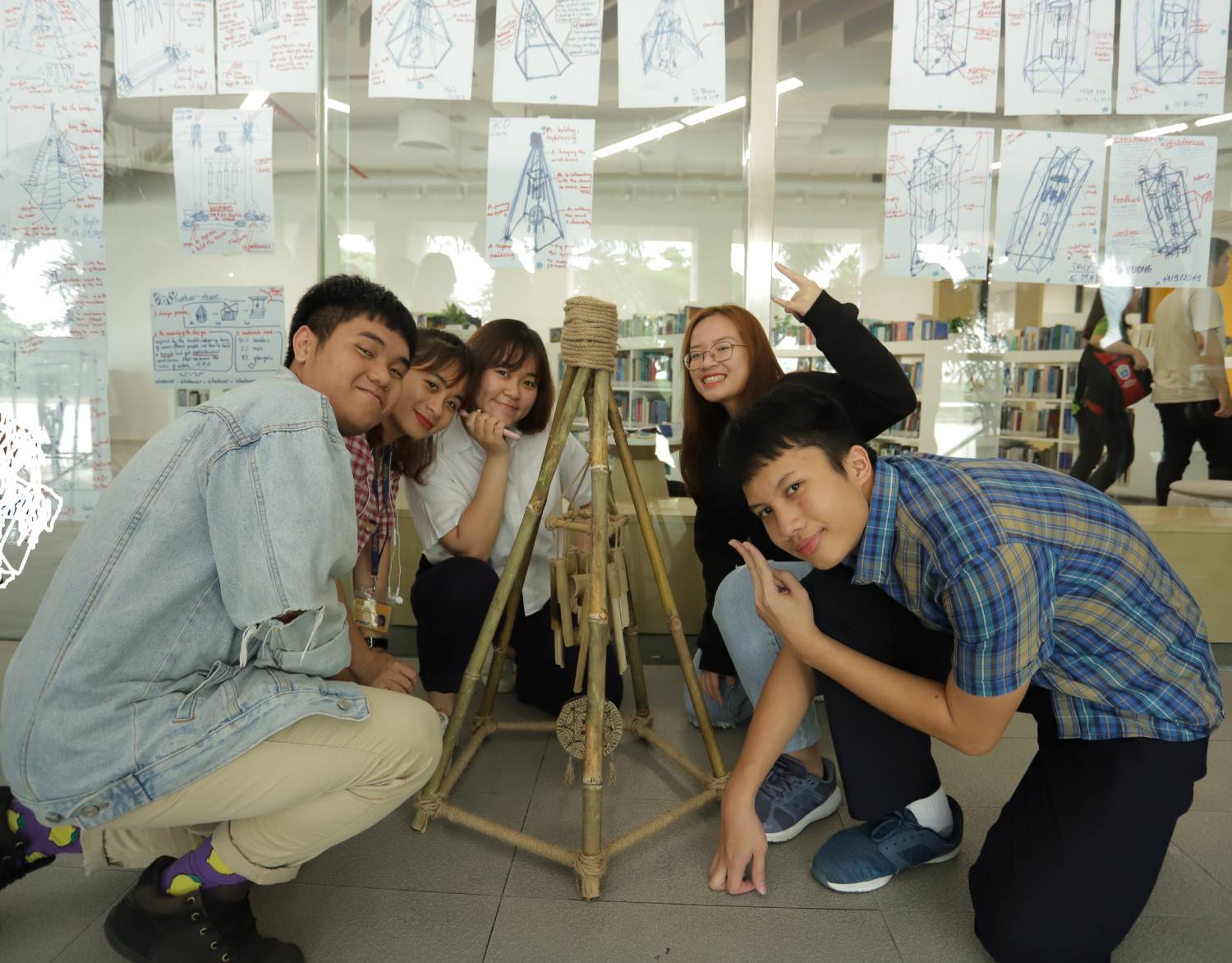
In a video that went viral in 2016, American rapper Prince Ea set up a hypothetical trial in which he appeared as the plaintiff against the modern education system. He sued the obsolete system of forcing all students into the same mold and assessing the abilities of everyone with standardized tests. The inspirational speech transformed into rhythmic rap has so far attracted more than 23 million views, with unforgettably epic lines:
“Albert Einstein once said: ‘Everybody’s a genius’.
But if you judge a fish on its ability to climb a tree, it will live its whole life believing that it is stupid.”
“Well get this: here’s a classroom of today and here’s a classroom we used 150 years ago.
[…] In literary over a century, nothing has changed. Yet you claim to prepare students for the future?”
“You see, every scientist will tell you no two brains are the same
And every parents with two or more children will confirm that claim.”
“If a doctor prescribed the exact same medicine to all of his patients. The results would be tragic; so many people would get sick.
Yet when it comes to school this is exactly what happens.
This educational malpractice where one teacher stands in front of 20 children each one having different strengths different needs different gifts different dreams and you teach the same thing the same way…”
Criticizing the education system for standardized tests that equalize all students on the road to success, Prince Ea argued that arts are just as important as maths. “Seeing all types of talent equally” is how education should be – this is also the message he conveyed through the video.
The problems that Prince Ea tried to raise seem to also ring true with the current educational context in Vietnam. People have written extensively about this “chronic disease” of education, the backwardness and obsolescence of the system. It has been teaching students outdated knowledge for so many years, while teaching and learning methods fail to keep up with the needs of the time and do not equip students with the skills to adapt to the ever-changing world.
The complicated and unpredictable developments of the COVID-19 pandemic once again underscored the fact that we live in a VUCA world, a world characterized by Volatility, Uncertainty, Complexity and Ambiguity. Under the impact of the 4.0 revolution, countless jobs will be replaced and new ones will emerge in the future. Education, especially public education in Vietnam, must innovate to adapt to that world. Along with educational innovation, the concept of liberal education has begun to gain popularity in Vietnam in recent years. Five years ago, Fulbright University Vietnam embarked on a journey based on the philosophy of liberal education, an educational model that favors the development of foundational knowledge and transferable skills.

Ms. Dam Bich Thuy at the webinar “Liberal Education & Comprehensive Development for Children” organized by Khai Nguyen – Inspire Schools
At the webinar “Liberal Education & Comprehensive Development for Children” organized by Khai Nguyen – Inspire Schools at the end of July, Ms. Dam Bich Thuy, President of Fulbright University Vietnam, remarked that liberal education is not a novel concept. This term has been around since the time of Ancient Greece to refer to a comprehensive training program, comprising subjects from different disciplines. “Students do not study just to get a job, instead, they learn in the spirit of freedom of thought and freedom to choose their own paths,” Ms. Thuy said.
Learning how to learn
An opinion that seems to be deeply ingrained in the perception of Vietnamese parents is to influence their children into pursuing a certain profession after completing K-12 school. According to Ms. Dam Bich Thuy, this is like a person holding a hammer in their hand, only looking for a nail to hit. Meanwhile, universities following the liberal education philosophy believe in creating opportunities for students to approach as many different fields of expertise as possible and not letting a fixed career path dictate what students will strive to accomplish during their college years. Specifically, at Fulbright University, students will be learning extensive core courses during the first 18-24 months of the 4-year program before deciding to commit to a major.
“The provision of such a broad spectrum of knowledge leaves many parents wondering: Why study so much? But learning so much is to prepare them with transferrable skills in the future. In case they have to switch from one job to another, they will not be intimidated because they already have the foundational knowledge. What is more important is that when they study diverse subjects, they are able to see the interdisciplinary relationships of different problems. The problems we are facing in today’s society need an interdisciplinary approach, we need to dissect them from many angles in order to solve them,” said Ms. Thuy.
Ms. Nguyen Thi Kim Anh, Rector of Inspire Schools – a school system following the liberal arts model, the essential goal of liberal education is to meet the needs of the VUCA world, as it provides students with not only knowledge but also transferable skills, such as problem-solving skills, so that they can adapt to a changing world.

Ms. Nguyen Thi Kim Anh, Rector of Inspire Schools
When it comes to skills needed to survive in the future, one of the most important is life-long learning, because today’s lessons may very well become obsolete in the next few years. The question is how to keep students’ passion for learning throughout 12 years of K-12 school and then 4 years of university, how to maintain the joy and excitement in learning so that they can continue their education for another 40-50 years of their life. According to Ms. Dam Bich Thuy, that is the greatest responsibility of educators. Liberal education can do a very meaningful job of helping children find joy in learning, because they will try their hands at many different fields.
Ms. Thuy gave an example that there are students entering Fulbright University who specialized in maths in high school and entered the school with the intention of majoring in engineering. Yet only after the first semester, they changed their mind and said they would like to pursue a career in history.
“When I asked them why, because most Vietnamese students don’t like history, one student replied: ‘I never thought history would be so interesting.’ A semester later, she came to me again and said, ‘I didn’t think psychology would be so amazing.’”
Parents in this situation might be very impatient and worried, because they think that their children are still clueless about what major to study in order to get a job. However, Ms. Thuy said that parents should rest assured because if children find what they like and find ways to study many subjects, they are likely to be very successful in this world.

Letting go of the preconceptions of knowledge
When students were given the challenge to fold a paper airplane that can fly the farthest, the unexpected winner was a student who rolled the paper up into a ball and threw it away. Ms. Kim Anh believes this is a prime example proving that students who can think outside of the box have the ability to adapt and win.
Quoting the American futurologist Alvin Toffler: “The illiterate of the 21st century will not be those who cannot read and write, but those who cannot learn, unlearn, and relearn,” Ms. Kim Anh believes that the advantage of liberal education is its ability to help students get out of their thinking rut and forget the preconceptions that they have learned in order to think creatively and to continue to absorb new knowledge (learn, unlearn and relearn).
Echoing this opinion, Ms. Dam Bich Thuy said that a great challenge of education is how to keep providing students with new knowledge but not limit their minds to a certain knowledge spectrum. A typical example is that although students in the US do not achieve high results in academic exams, most of the world’s great inventions are from in the US. This is thanks to the education system not placing emphasis on what’s right or wrong, but instead empowering learners to challenge what they’ve learned to think creatively and critically for their future work.

Learning to thrive in the community
Fulbright University’s liberal philosophy is applied right from its admissions: student transcripts and results of standardized tests are not determinants for the Admissions Committee to admit students to Fulbright. What Fulbright appreciates in a student portfolio is a personal product through which Fulbright can understand who the student is: it could be a doll she made, a poem she wrote, or a scarf she knitted for her grandma… Through her explaining why the product was meaningful to her and through rounds of interviews, Fulbright will be able to see the real person of that student.
“We want to build a student community in which each student is a unique individual. They can bring their own values and qualities that can help others grow and change together,” Ms. Thuy shared.
Since each student has distinct values and virtues, they can find a lot to learn from their peers, because learning from friends is much more valuable than learning knowledge in class. Fulbright always wants each student to have an unforgettable 4-year college experience in a diverse group where they not only learn knowledge but also learn to share, learn to live with differences, and develop teamwork skills later on.

The liberal orientation also pervades and influences Fulbright’s criteria for faculty selection: a teacher at Fulbright is someone who can inspire students’ passion for learning and discovery, and not necessarily someone with a vast volume of knowledge. Therefore, students will not feel that 4 years of university is a burden, but a happy and joyful time of their lives before they go out into the world.
Thuy Hang







